One of the best scorers in Russian Premier Liga history, Sardar Azmoun spent nine years in Russia. Now he will continue his career at Bayer Leverkusen.
We recall the key stages in the Russian career of the Iranian striker, who played in the RPL for Rubin, Rostov and Zenit.
Azmoun played for the first time in Russia in January 2012. The Iranian youth national team came to St. Petersburg to participate in the Commonwealth Cup. The tournament was held for the first time among the national teams, having previously been played by the champions of the top leagues of the CIS (including the RPL) and teams from invited countries. The national teams could bring players born no earlier than 1990, and the Iranians brought players born in 1993, 1994 and even in 1995 - the youngest group including Azmoun, who had only turned 17 on 1 January. Nevertheless, young Sardar became the top scorer of the tournament with seven goals.
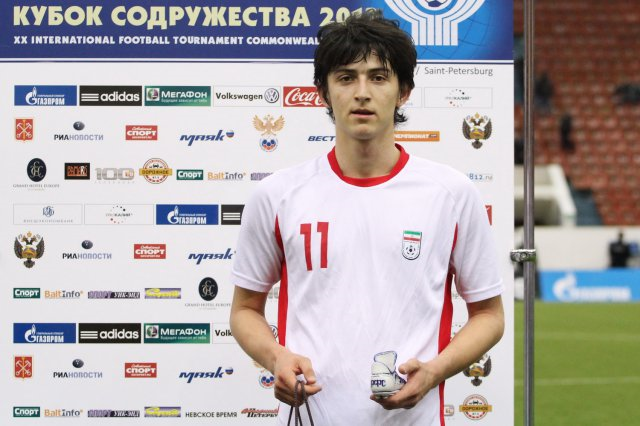
Azmoun signed a four-year contract with Rubin in December 2012. Rubin had become interested in the Iranian precisely because of the Commonwealth Cup. "The players were practicing crossing movements, and I noticed his incredible jumping ability," Marat Kabayev - who had come to the tournament as a representative of Rubin - recalled in an interview with BUSINESS Online. “Then they started crossing, and Sardar confidently hit the target with both feet. The 17-year-old guy felt charged even in the warm-up."
Azmoun made his debut for Rubin in the summer of 2013. For the first six months after his transfer, the Iranian played for the youth team, before his debut for the main side came in a Europa League second round qualifier on 25 July. Azmoun came on for 17 minutes in the 1-0 second-leg win over Jagodina. In the same tournament, Azmoun scored for Rubin for the first time on 29 August, his goal helped finish off Molde in the playoff round 3-0 second-leg win and qualify for the group stage.
Azmoun marked his RPL debut with a goal against Anzhi. In the match held in Kazan on 6 October 2013, the striker came on as a substitute in the 73rd minute, and with his participation, Rubin scored twice in added time. Sardar scored himself and later earned a penalty, which was converted by Roman Eremenko to hand Rubin a crushing 5-1 victory.
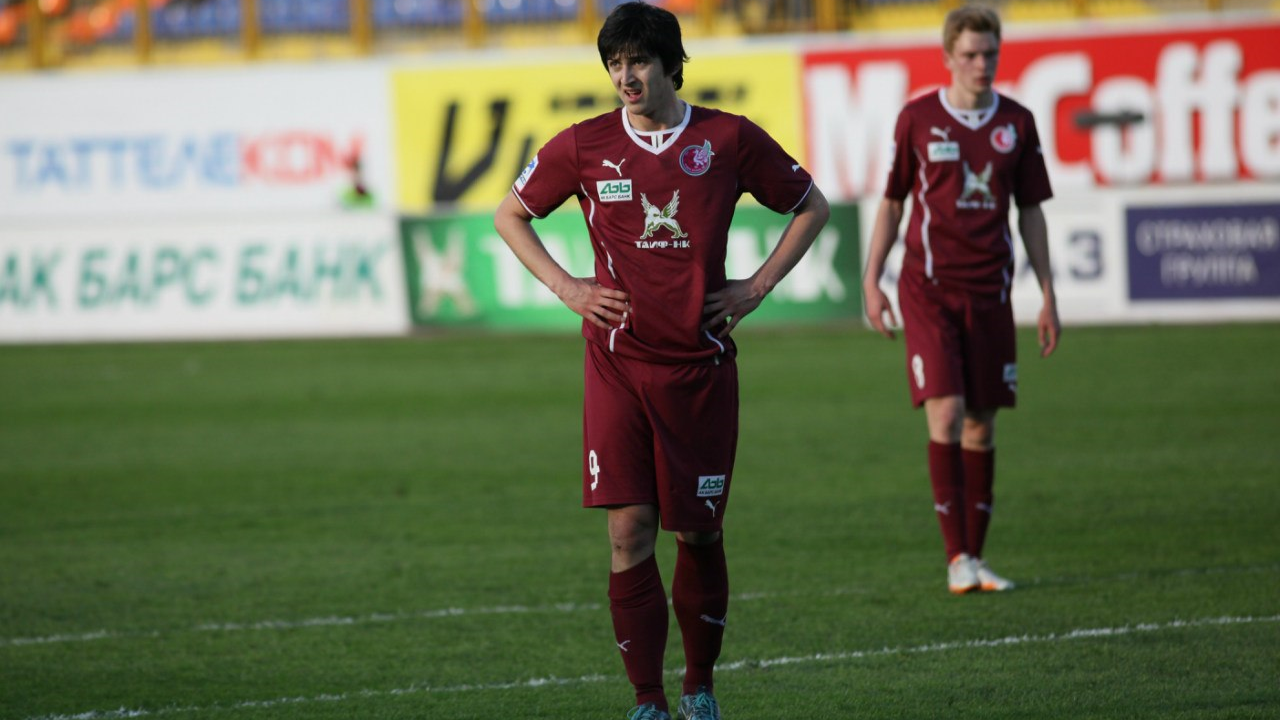
Azmoun remained at Rubin after Berdyev's resignation at the end of 2013. The club wanted to loan out the young foreigner, but Rinat Bilyaletdinov, who led the team after Berdyev, persuaded them. "I insisted that the guy still needs to be looked at, but they said that he gets sick every other time and he has no muscles at all," the coach told Sports.ru. “I think: what do you want? He's still very young, let's at least try it in training. The training camp has started, I look at Sardar: he knows how to open up at the right moment, and understands when to break away from the opponent to take the ball. I realized that I need to keep him." In the spring, Azmoun scored three goals in eight RPL matches.
Azmoun earned a call-up to the national team of Iran thanks to Rubin. He received his first international call in October 2013, but the 19-year-old played his first match only in the spring, coming on for 30 minutes on 26 May 2014 in a friendly with Montenegro. Iran were then preparing for the World Cup in Brazil, and the Rubin forward didn’t make the final cut. "I do not know why I played so badly, maybe I was nervous before the World Cup," Azmoun recalled in an interview with R-Sport in 2016. “It was my first appearance on the pitch, in 20 days I would have to perform at the World Cup, and my hands were literally shaking."
Azmoun reunited with Berdyev at Rostov. For the sake of working with the coach, Sardar went to Rostov on loan. Besides, his statistics at Rubin for the first part of the 2014/15 season were modest – four starts and one goal in 13 matches. Rostov were the bottom of the RPL, but after Berdyev’s appointment they avoided relegation as Azmoun scored three goals in the spring, and against Tosno in the relegation playoffs. For the next season, Rostov again loaned the Iranian.
Azmoun became Rostov’s top scorer in the runners-up season. Sardar had scored only three goals by the winter break, but added six goals more in the last six rounds in the spring. Berdyev had a special demand from the Iranian. "I talk to him tougher than the others," the coach said after the season. “I have the right to do so. His father allowed me to use any methods. Azmoun has 10 million fans in Iran. Naturally, he has some strange thoughts. I have to talk to him often so that he doesn't pay attention to it." No wonder Azmoun's dad said: "I am his father in the family, while his father on the football pitch is Kurban Berdyev."
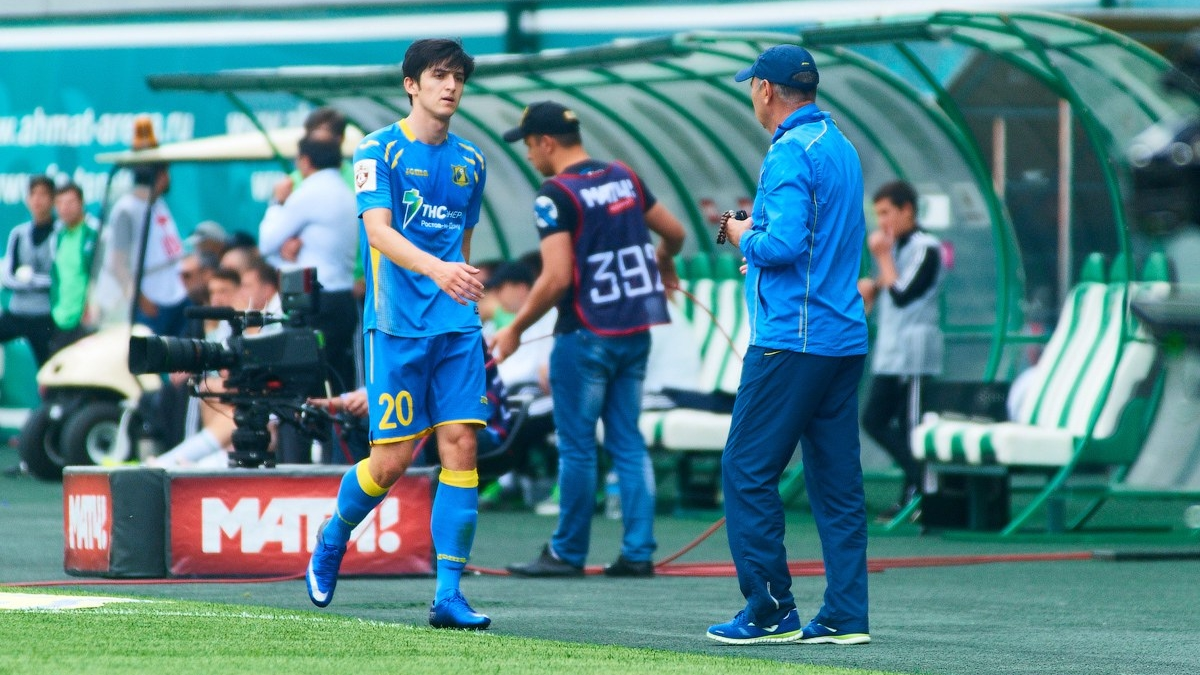
Azmoun and his goals brought Rostov all their major Champions League victories. In the qualifiers, Sardar scored in the 2-0 win over Anderlecht in Brussels and the 4-1 win against Ajax at the Olympus-2, which earned the Yellow-Blues passage into the group stage. An Azmoun goal was not enough to take points from Atletico in a 2-1 away defeat, but another set Rostov on the road to a resounding 3-2 victory over Bayern. The footballer admitted that one of the Rostov fans wanted to give him two horses for his goal against the Bavarians; the decision was understandable, as Azmoun runs a stable in Iran.
Azmoun followed Berdyev back from Rostov to Rubin. The coach headed the Kazan club for the second time after the 2016/17 season, and not only did his Iranian protege move with him from Rostov, but also Soslan Dzhanaev, Vladimir Granat, Fedor Kudryashov, and later Cesar Navas. The result of the mass return was only tenth place in the RPL.
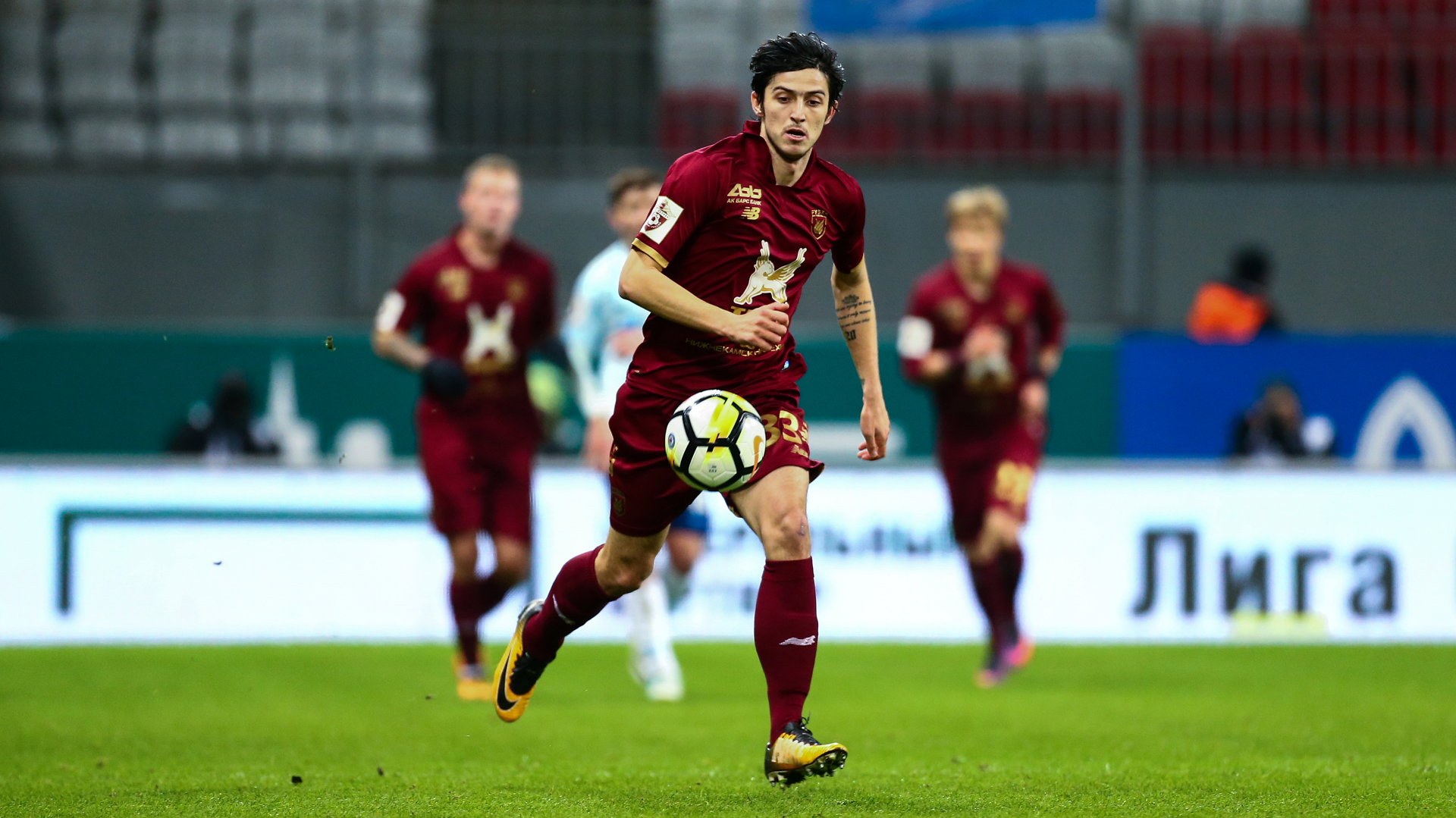
Azmoun represented the Iranian national team at the World Cup in Russia. The Iranian approached the tournament with the status of his country’s star striker, after 23 goals to his name since his debut. In the group stage, the striker did not miss a minute, but he also didn’t score, and Iran failed to qualify for the playoffs. Azmoun later wrote on Instagram about retiring from the national team, but in October 2018 he returned – and not without Berdyev's intervention. "You have to play for your homeland. This is your country. Why do you refuse to represent her at this age? This is the wrong step," the coach recalled from his dialogue with the player in an interview with BUSINESS Online.
Azmoun moved to Zenit after the Asian Cup in early 2019. At the tournament in the UAE, the striker scored four goals, only for Iran to lose in the semi-finals to Japan. The desire for a deal was mutual: Sergey Semak wanted to add competition for Artem Dzyuba, Azmoun wanted to work with Semak and play for the RPL leaders. The Iranian confessed to Match TV: "I told my parents before that if I leave Rubin, but at the same time stay in Russia, then I would like to play for Zenit.”
Azmoun scored in four consecutive games at the start of his career in St. Petersburg. The striker made his debut in the first leg against Fenerbahce in the Europa League playoffs, but only came on for 15 minutes. In the return game, however, he scored a double that took Zenit to the last 16. In the RPL, thanks to the Iranian, Zenit beat Ural and Ufa. Azmoun scored against Villarreal at home, but this did not save his side from defeat and subsequently being knocked out of European competition.
Azmoun won the first trophies of his career at Zenit. Before moving to St. Petersburg, his biggest success was the RPL runners up medal he earned with Rostov in the 2015/16 season. At Zenit, Azmoun won three consecutive RPL titles, one Russian Cup and two Super Cups. Incidentally, in the two games where Semak's team won the title, Sardar scored. In July 2020, he bagged a double against Krasnodar, and in May 2021, he scored a hat-trick against Lokomotiv. His collection of personal awards includes prizes for top scorer of the 2019/20 season (won together with Dzyuba) and the best player of the 2020/21 season.
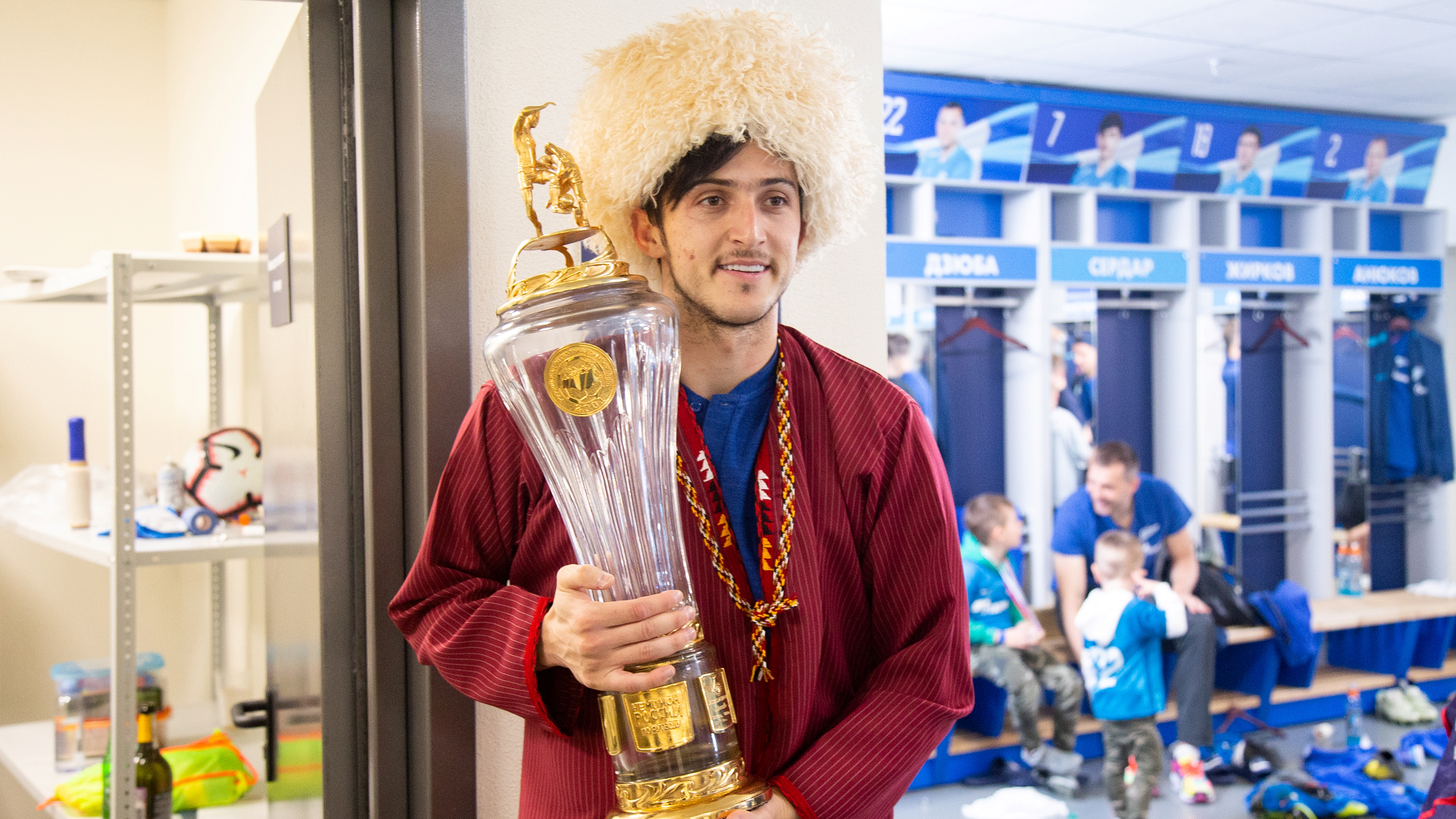
Azmoun most often scored from Dzyuba's passes. The Russian international set up Sardar score 14 times, while the Iranian returned the favour on 10 occasions, all in Zenit matches. In the winter of 2015, the attackers had come together to save Rostov from relegation when Dzyuba was sent on loan by Spartak. Later, Azmoun recalled that even then Dzyuba became friends with his family, and the Iranian's mother even prayed that Dzyuba would break his goalless streak - as a result, the striker scored once on loan.
Azmoun matched the RPL record for goals among foreign players. Sardar has played 208 matches and scored 85 goals, making him the sixth highest scorer in the history of the Premier Liga. The same mark was met by Vagner Love, all for CSKA. The Iranian's goal distribution was as follows: 14 for Rubin, 19 for Rostov, and 52 for Zenit. He scored his 85th goal on 29 October against Dynamo, after which he played five more matches, but the record-breaking goal never came.
Azmoun is the 11th highest Zenit scorer in the history of the club. In three years with the Blue-White-Sky Blues, the Iranian scored 62 goals, just six shy of the top 10, which is rounded off by Danny. As one of the top scorers in the history of Russian football, Azmoun moves to the next level, joining German side Bayer Leverkusen in the company of ex-Zenit man Andrey Lunev.
Photo: Anna Meyer / Zenit; official website of the Commonwealth Cup; Dzhalil Gubaidullin / Rubin; Rostov; Mikhail Razuvaev / Zenit




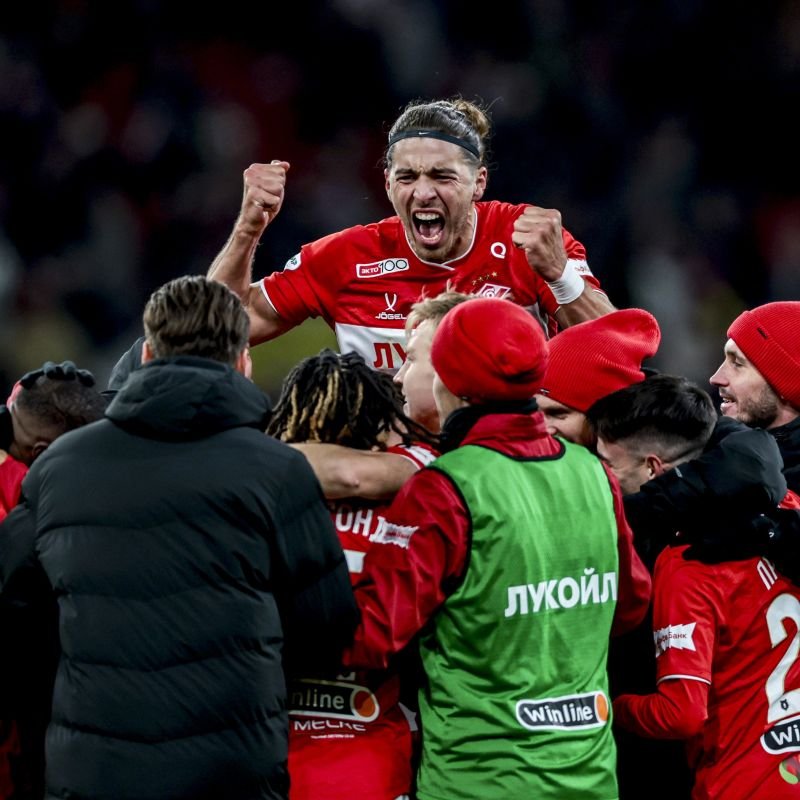
Обратная связь
Вы можете обратиться в РФПЛ с интересующим Вас вопросом или оставить сообщение (пожелание, замечание). Также вы можете сообщить имеющиеся у вас сведения о "договорных" матчах.